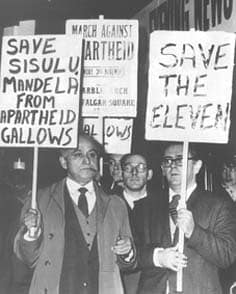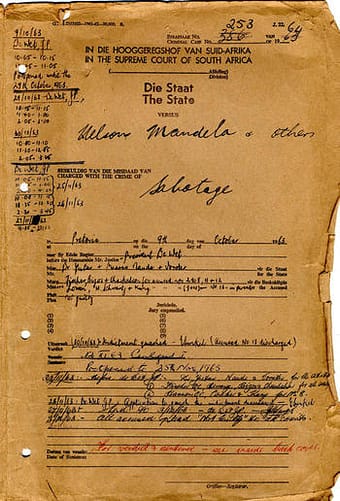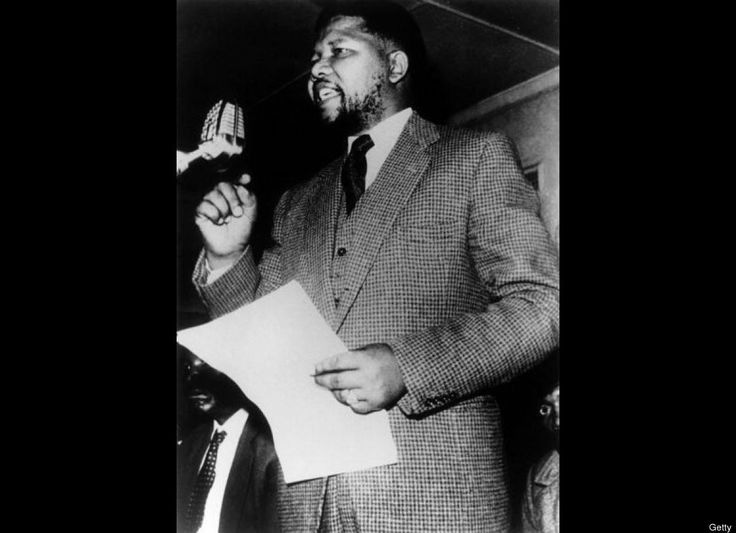Nelson Mandela’s statement from the dock at the start of the Rivonia Trial took him two weeks to prepare and four hours to read, but it was the last sentence that stunned the courtroom into a thirty second silence:
“But if it needs be, it is an ideal for which I am prepared to die.”

In making this statement from the dock and concluding with this sentence, Mandela broke two cardinal rules of defense testimony:
1) A statement, because it is not subject to cross-examination, carries little weight in establishing innocence or mitigation of sentence.
2) Telling a judge that you are prepared to die when staring a death-sentence in the face, is provocative and reckless in the extreme.
Mandela’s legal counsel advised him strongly against both, but he persisted and won the support of his fellow accused.
I AM PREPARED TO DIE: WAS HE RIGHT?
Was Mandela right to pursue this line of (non) defense? Looking at the pro’s and the con’s will help us decide:
CON’S
1) Although their defense was a joint decision, there is little doubt that Mandela’s opinion held the most sway in the group. As the head of Umkhonto we Sizwe and the ex-deputy president of the ANC, he was the political senior.
2) As the lawyer in the group, he was the most suited to stand up to the cross-examination of the state.
3) As a lawyer, he also knew that their defense counsel’s primary purpose was to get the best possible sentencing outcome for their clients. His choices frustrated that purpose.
PRO’S
1) The decision gave Mandela the platform to make a lengthy political statement to highlight their grievances and beliefs to the world.
2) It was a powerful moral statement, showing that their cause was more important than their own lives – a chance at martyrdom.

The outcome of the trial was a surprisingly good one for Mandela and his co-accused in that they did not receive the expected death sentence. But it so easily could have been different. Mandela might have been hanged, and would never have provided South Africa and the world with the leadership he did, albeit 27 years later.
Was Mandela’s decision a reckless or heroic one?
